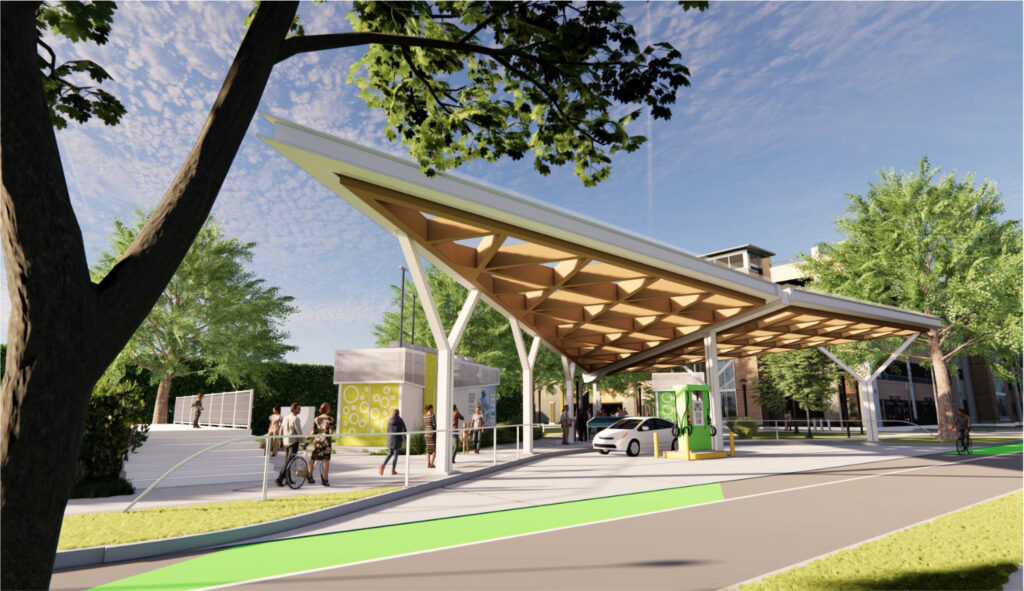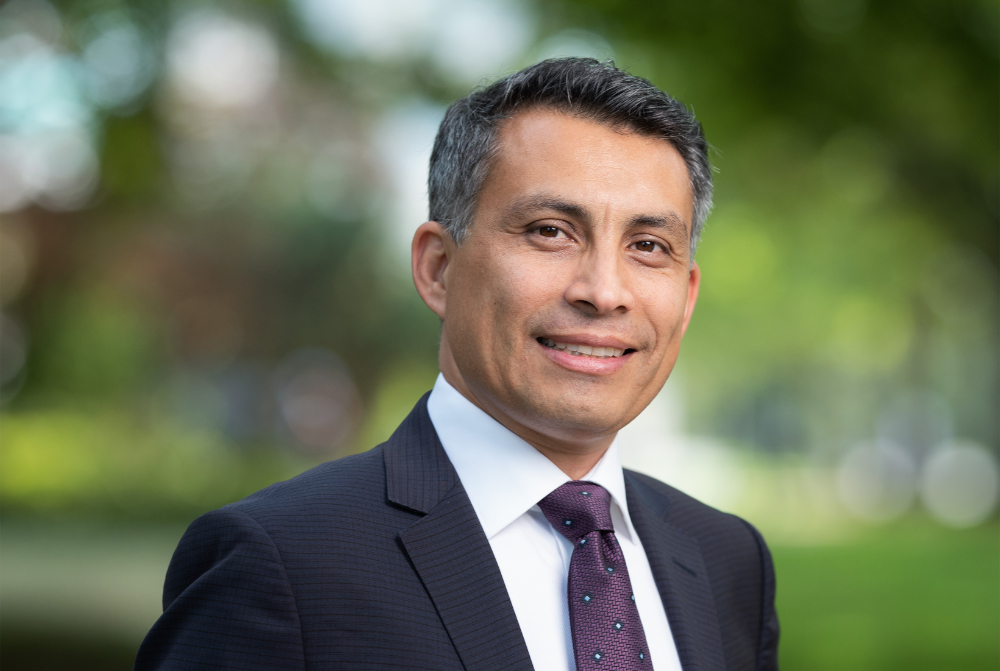UBC launches renewable-energy research hub to create ‘living lab’ on campus
A $23-million UBC renewable-energy research hub featuring a hydrogen refuelling station for cars, trucks and buses will generate clean-transportation developments across the globe, says the project’s lead researcher, Dr. Walter Merida, PhD.
“Once we make (the hub) work on campus, you can then translate and clone the solutions in real cities around the world,” said Merida, who also serves as UBC’s Associate Dean of Research for Applied Science.
Construction on the hub has begun. When complete in 2022, it will convert the equivalent of a city block on UBC’s main Vancouver campus into what a news release calls a “smart energy district” and “living lab.” The hydrogen refuelling station will be the first in B.C. for light-duty and heavy-duty vehicles.
 An artist's rendering of a hydrogen refuelling station to be built on the University of British Columbia campus. (Courtesy of UBC)
An artist's rendering of a hydrogen refuelling station to be built on the University of British Columbia campus. (Courtesy of UBC)
“We want to demonstrate that the solutions for the climate crisis are not going to be individual pieces,” said Merida, whose research focuses on hydrogen power projects. “I think we need to have a systems approach. And this project on campus is illustrating how integration will provide solutions that are more than the sum of their parts.”
The hub will generate zero emissions. The refuelling station will deploy an electrolyzer that will split water into hydrogen using electricity from solar panels installed atop a parkade. The station’s components will include hydrogen storage facilities and a fuel dispenser that can supply hydrogen at pressures that meet the different requirements for light-duty and heavy-duty vehicles.
The hub will also contain an electric-vehicle recharging system designed to store surplus electricity for future use within homes, buildings and municipal power grids.
Hub operations will be managed and analyzed through UBC’s existing wireless and 5G networks. Funding will also go towards research in other UBC labs related to digital innovation, hydrogen production and technologies such as fuel-cell batteries.
The B.C. Ministry of Energy Mines and Low Carbon Innovation is providing $5.6 million in carbon credits, which UBC will sell on the market. The province is supplying $4.8 million through the B.C. Knowledge Development Fund, while the federal government is kicking in $9.8 million through the Canada Foundation for Innovation ($4.8 million), Natural Resources Canada ($2.3 million) and Western Economic Diversification Canada ($2.7 million).
Meanwhile, industry partners, which include North Vancouver-based Hydrogen Technology and Energy Corporation (HTEC), are supplying $2.6 million.
[caption id="attachment_24246" align="alignnone" width="1000"] “Once we make (the hub) work on campus, you can then translate and clone the solutions in real cities around the world,” says lead researcher Dr. Walter Merida. (Courtesy of UBC)[/caption]
“Once we make (the hub) work on campus, you can then translate and clone the solutions in real cities around the world,” says lead researcher Dr. Walter Merida. (Courtesy of UBC)[/caption]
UBC in discussions to clone hub elsewhere
Merida said the “small project” will offset 450 tonnes of carbon dioxide emissions produced annually by diesel and gasoline-powered transportation loads. But the hub’s most valuable impact will be its replication in other cities.
UBC has already begun discussions with nearby municipalities, including the cities of Vancouver and Richmond, as well as municipal and First Nations leaders in Squamish, B.C., on ways to clone the hub.
By using the campus as a living lab, Merida believes, UBC researchers are providing a model that reduces risk, and the university is serving as a “first customer” that can tolerate risk while furthering innovation in conjunction with partners.
Research associated with the hub at other UBC labs, particularly projects tied to networks and interconnectedness, will be critical to the development of more smart energy districts, he said.
“(The research) is about this integration, when we stop looking at civil infrastructure and transportation systems as separate things — and we start understanding them as a combined system.”
R$
| Organizations: | |
| People: | |
| Topics: |
Events For Leaders in
Science, Tech, Innovation, and Policy
Discuss and learn from those in the know at our virtual and in-person events.
See Upcoming Events
You have 0 free articles remaining.
Don't miss out - start your free trial today.
Start your FREE trial Already a member? Log in
By using this website, you agree to our use of cookies. We use cookies to provide you with a great experience and to help our website run effectively in accordance with our Privacy Policy and Terms of Service.





